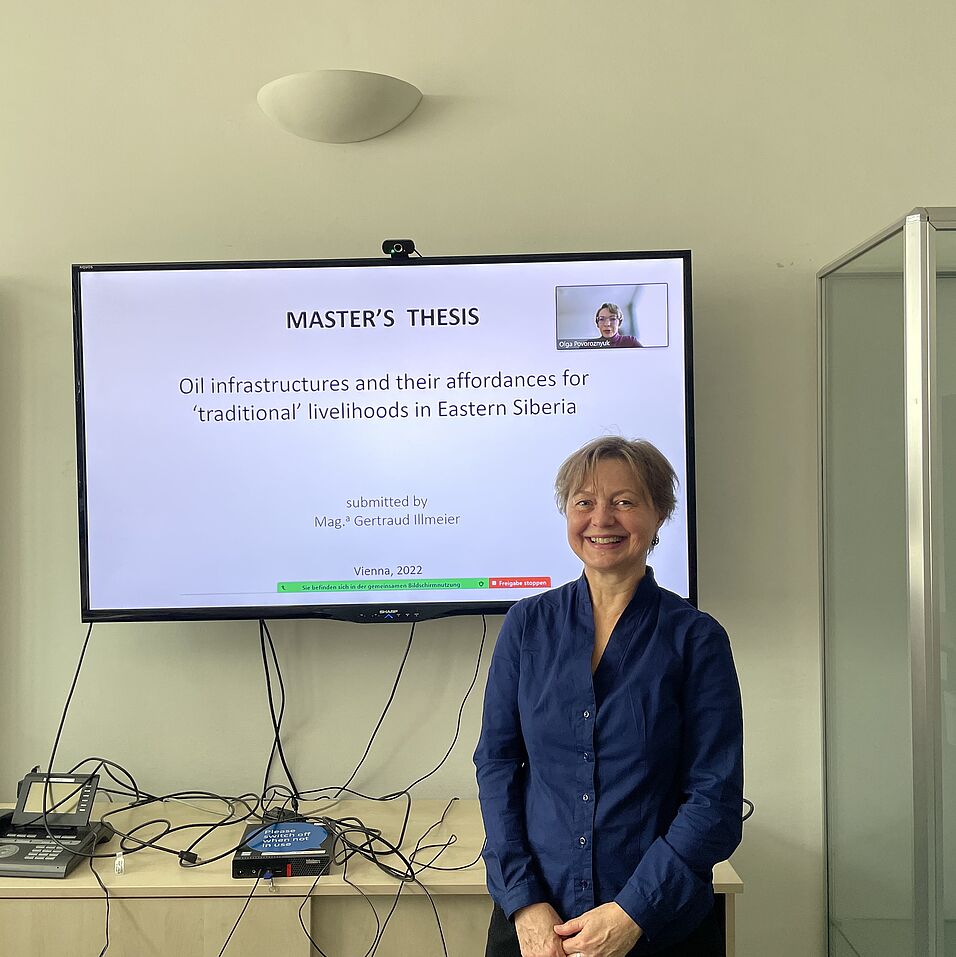Engaging a relational affordance concept, the thesis firstly explores
the relations between the taiga hunters of the village Tokma and
‘seismic lines’ ̶ straight routes logged in grid-like patterns for oil
exploration – which have altered the northern landscape, pervading it
with a dense grid of open corridors. Secondly, it examines the
unintended consequences of this oil infrastructure that affords the use
of snowmobiles and thus evokes demands for fuel and spare-parts. Seismic
lines foster new entanglements of the people of Tokma with the oil industry
that reconfigure local mobilities and livelihoods.

